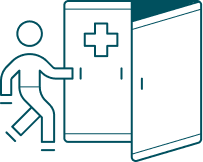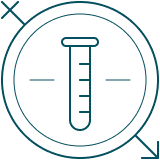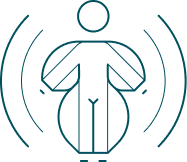
Women’s Health
At PrimeDoc we understand that women’s health needs are diverse and complex, which is why we offer a wide range of services designed to address every aspect of your health. From preventative care, family planning, and reproductive health to management of menstrual and menopausal symptoms, we’re here to support you through all stages of your life.
Our healthcare providers are experts in their respective fields, and we utilize the latest technology and evidence-based medicine to provide accurate diagnoses and effective treatments. We also prioritize patient education, taking the time to explain your diagnosis, treatment options, and preventative measures, so you can make informed decisions about your healthcare. We believe that taking care of your health is essential to living a happy, fulfilling life, and we’re here to support you every step of the way.
PAP Smear & HPV Testing
A PAP smear is a screening test that helps in detecting abnormal cervical cells, which could indicate cervical cancer or precancerous conditions. These tests are recommended for women starting at age 21 or when they become sexually active, and should be repeated at regular intervals according to individual risk factors and medical history. HPV testing is often done at the same time as a PAP smear to check for the presence of the human papillomavirus, which can cause cervical cancer.
Breast Cancer Screening
Breast cancer screening includes clinical breast exams, mammograms, and self-exams. Clinical breast exams are physical exams performed by a healthcare provider, and self-exams involve checking the breasts for any lumps or changes. PrimeDoc providers will provide clinical breast exams and if needed, will refer you for mammograms. Mammograms are X-ray images of the breast tissue, and are recommended every one to two years for women starting at age 40 or earlier for women with a family history or other risk factors.
Vaginal infections
Vaginal infections can be caused by a variety of factors, including bacteria, yeast, and sexually transmitted infections (STI). Symptoms may include itching, burning, and abnormal discharge. Treatment may involve antibiotics, antifungal medications, or other medications depending on the underlying cause.
Sexually transmitted infections
Sexually transmitted infections (STIs) are infections that are spread through sexual contact. Common STIs include chlamydia, gonorrhea, and syphilis. STI testing is recommended for sexually active women and may involve blood tests, urine tests, or swabs of genital areas․
Birth Control, Contraception & Family Planning:
There are many different types of birth control methods available, including hormonal contraceptives such as the pill, intrauterine devices (IUDs), and barrier methods such as condoms. Family planning services may also include counseling on fertility and pregnancy options․
Menstrual disorders
Menstrual disorders refer to any abnormal changes or irregularities in a woman’s menstrual cycle, such as heavy bleeding, missed periods, painful cramps, and irregular cycles. These issues can be caused by a variety of factors, including hormonal imbalances, medical conditions, and lifestyle factors.
In order to determine the underlying cause of the menstrual disorder, your healthcare provider may perform a physical exam, blood tests, and imaging studies. Once the underlying cause is identified, treatment can begin. Treatment options may include medication, hormonal therapy, lifestyle changes, or other interventions, depending on the specific disorder and severity
Menopause Management
Menopause is the cessation of menstrual periods and is a natural part of aging for women. Menopause management may involve hormone replacement therapy or other treatments to manage symptoms such as hot flashes, vaginal dryness, and mood changes․
Urinary tract infections
Urinary tract infections (UTIs) are bacterial infections of the urinary system and are more common in women than men. Symptoms may include pain or burning during urination, frequent urination, and lower abdominal pain. Treatment typically involves antibiotics․
Polycystic ovaries
Polycystic ovary syndrome (PCOS) is a hormonal disorder that can cause irregular periods, weight gain, and other symptoms. Treatment may involve lifestyle changes, hormonal therapy, or other interventions depending on the individual’s symptoms and medical history․
Osteoporosis:
Osteoporosis is a condition in which the bones become weak and brittle, making them more prone to fractures. Women are at higher risk for osteoporosis than men, particularly after menopause. Treatment may involve medications, calcium and vitamin D supplements, and lifestyle changes to promote bone health.






















